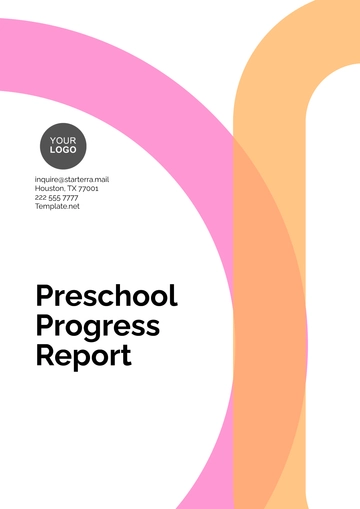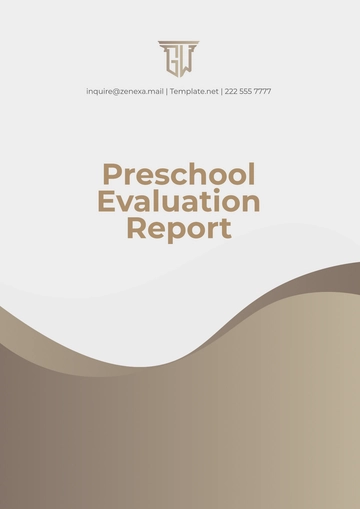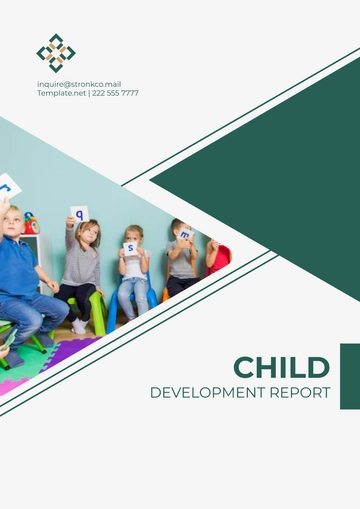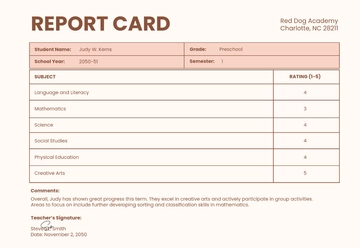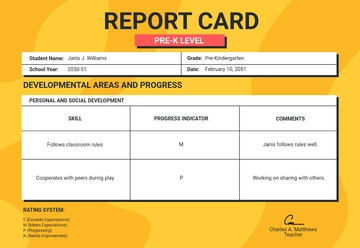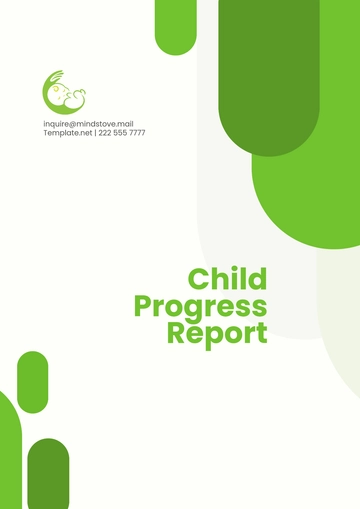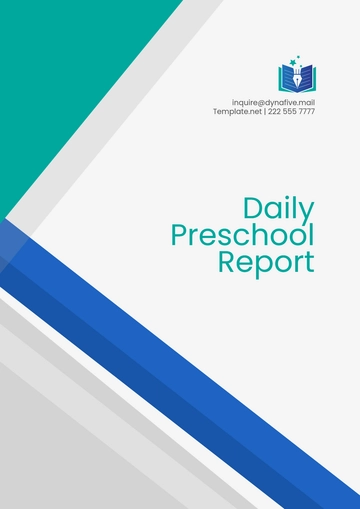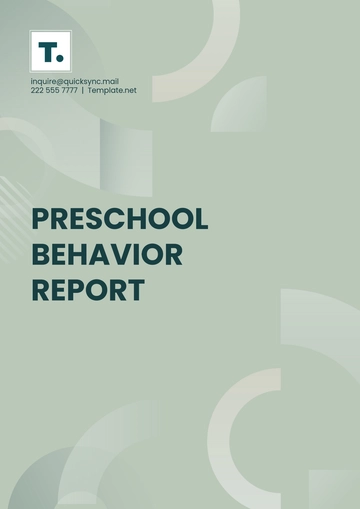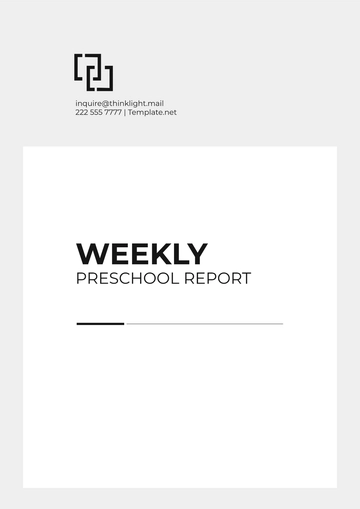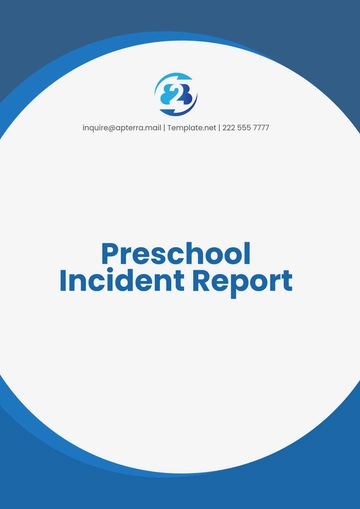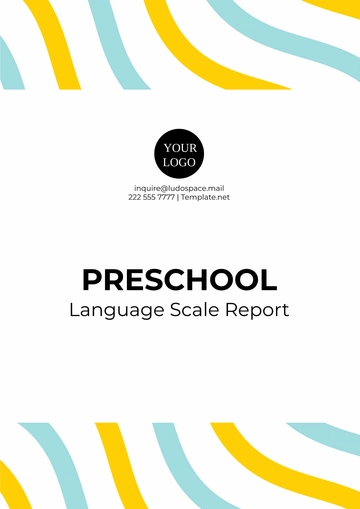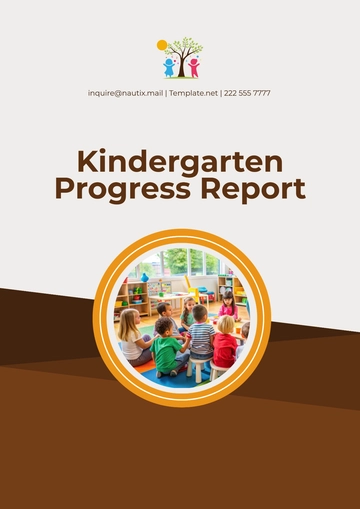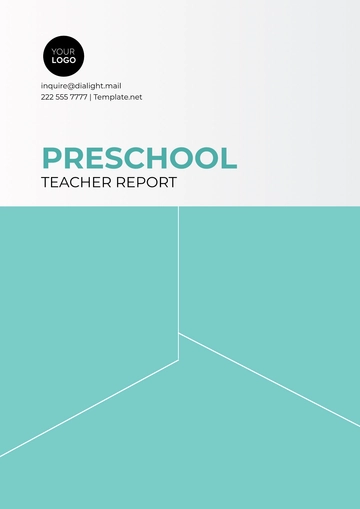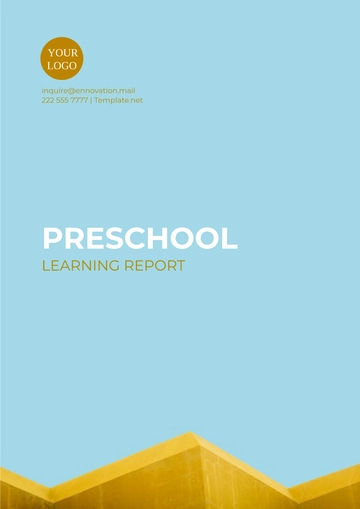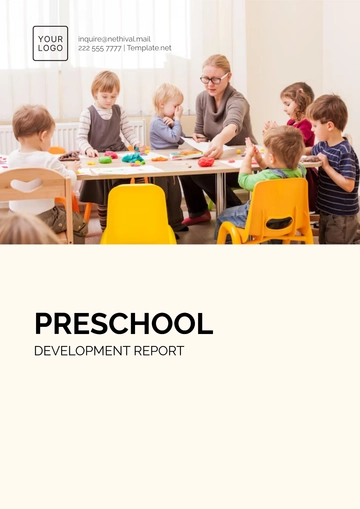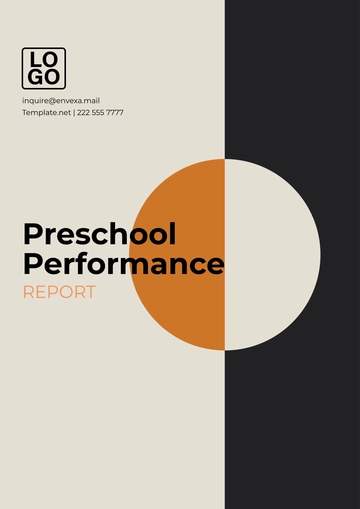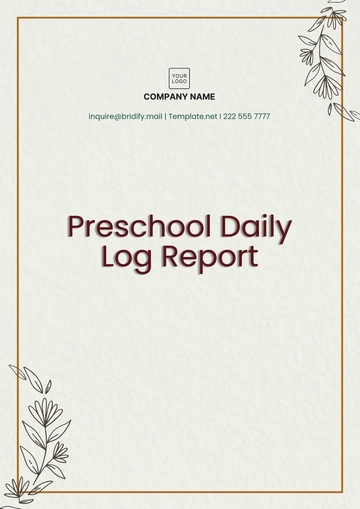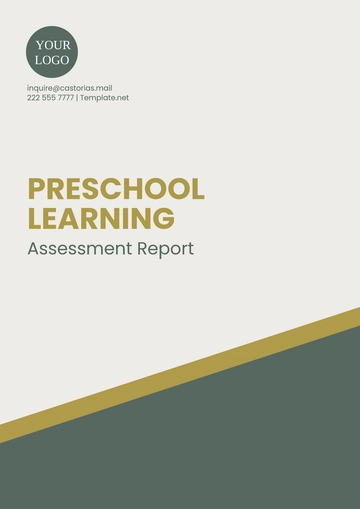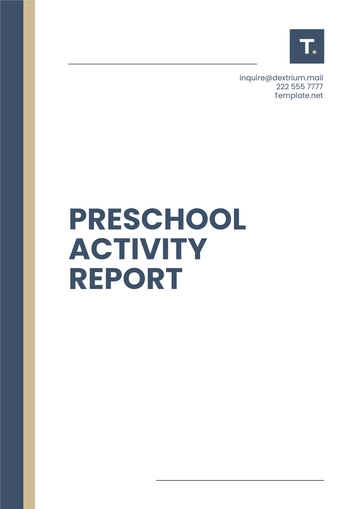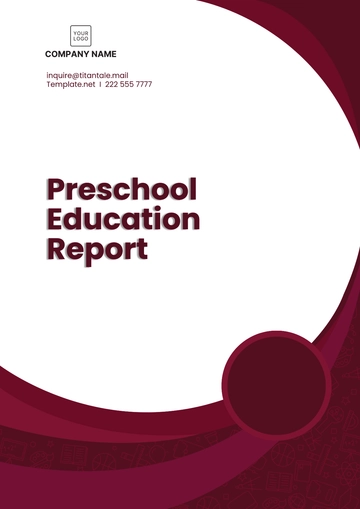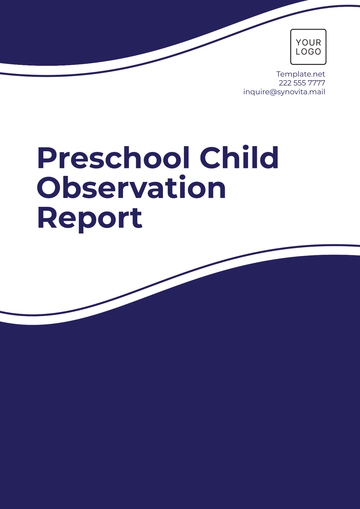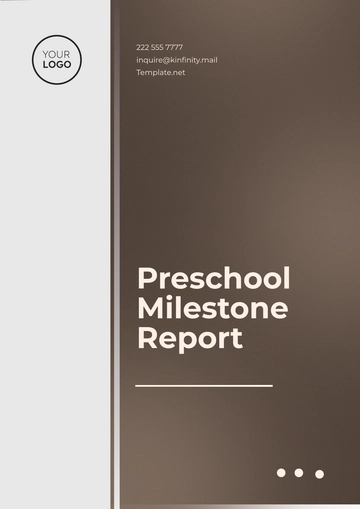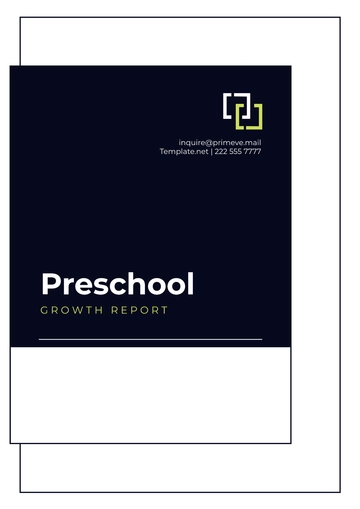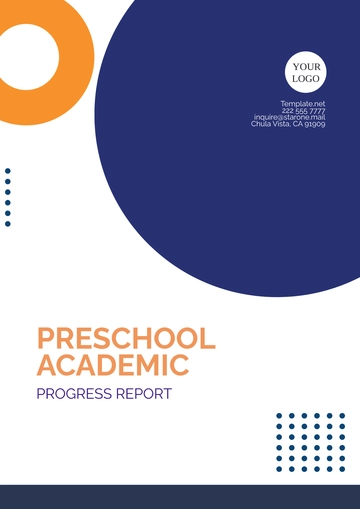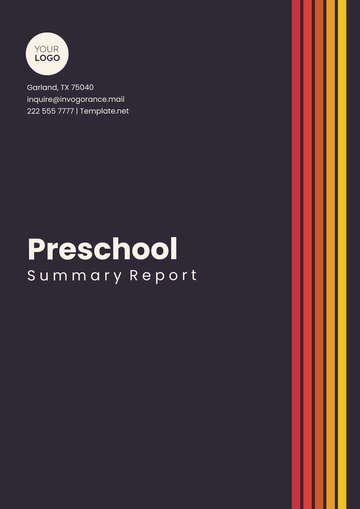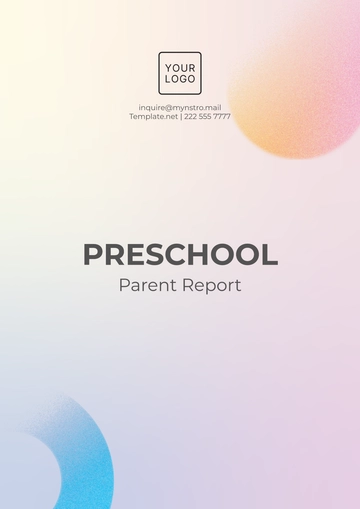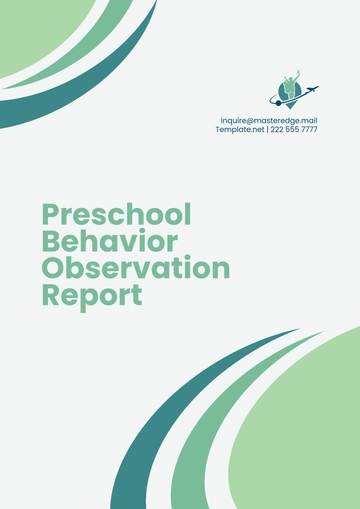Free Preschool Report
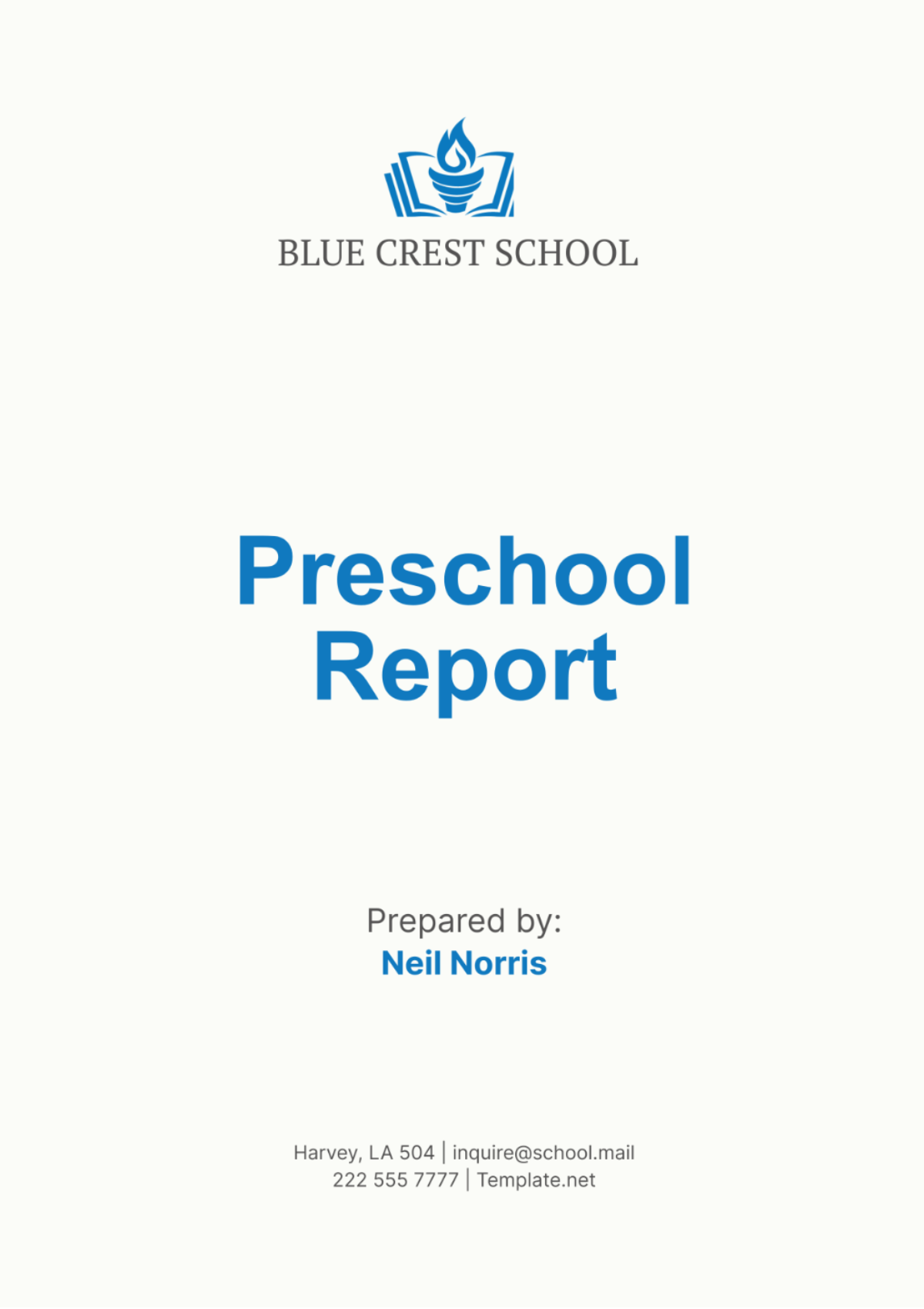
School Year: 2055 - 2056
I. Student Information
Name: Lyda Fadel
Age: 4
Classroom: Sunshine Room
Teacher: [YOUR NAME]
II. Attendance
Number of Days Attended: 86
Total School Days: 90
Comments on Attendance:
Lyda has had excellent attendance this term, missing only a few days due to a minor cold. Her consistent presence has positively impacted her learning and social interactions.
III. Developmental Areas
A. Social and Emotional Development
Key Observations:
Lyda is confident and enjoys participating in group activities, such as story time and circle games.
She has developed strong friendships with several classmates and is kind and empathetic towards others.
Areas of Strength:
Sharing toys and taking turns without reminders.
Demonstrating independence in daily routines like tidying up and following classroom rules.
Areas for Growth:
Encouraging Lyda to express her emotions more clearly during challenging situations, such as when she feels upset.
B. Cognitive Development
Key Observations:
Lyda is curious and enjoys exploring new topics, particularly during science experiments and sensory play.
She recognizes numbers up to 20 and can identify basic patterns.
Strengths:
Excellent memory for details in stories and instructions.
Strong problem-solving skills during puzzles and building activities.
Goals for Improvement:
Strengthening her ability to sequence events in stories or daily activities.
C. Physical Development
Gross Motor Skills:
Lyda demonstrates good coordination and balance, excelling in activities like hopping, skipping, and climbing on the playground.
Fine Motor Skills:
Her ability to hold a pencil correctly and draw shapes has improved significantly. She enjoys crafting activities and shows steady progress in cutting and tracing.
D. Language and Communication Development
Key Observations:
Lyda speaks clearly and confidently, often using full sentences to express her thoughts.
She listens attentively during story time and asks thoughtful questions.
Strengths:
Expanding vocabulary and using descriptive words in conversations.
Participating enthusiastically in songs and rhymes.
Goals for Improvement:
Encouraging Lyda to practice writing her name more consistently.
IV. Classroom Activities and Participation
Key Contributions:
Lyda often volunteers to help during cleanup and enjoys being a classroom helper.
Favorite Activities:
Painting, building with blocks, and participating in outdoor obstacle courses.
Peer Interactions:
She is well-liked by her classmates and often takes on a leadership role during group projects.
V. Recommendations and Next Steps
Suggestions for Support at Home:
Read with Lyda daily to build her sequencing skills and comprehension.
Provide opportunities for creative activities like drawing or crafting to continue developing her fine motor skills.
Focus Areas for the Next Term:
Practice writing her name and forming letters more independently.
Encourage further exploration of numbers through simple math games.
VI. Notes
Lyda has had a wonderful term and is a joy to have in the Sunshine Room. She is eager to learn and always brings a positive attitude to the classroom.
Prepared by:
[YOUR NAME]
[YOUR COMPANY NAME]
Date: December 15, 2055
- 100% Customizable, free editor
- Access 1 Million+ Templates, photo’s & graphics
- Download or share as a template
- Click and replace photos, graphics, text, backgrounds
- Resize, crop, AI write & more
- Access advanced editor
Organize preschool progress efficiently with Template.net's Preschool Report Template. This editable, customizable template streamlines reporting, ensuring comprehensive developmental tracking. Enhance accuracy with our AI Editor Tool, allowing easy modifications to suit individual needs. Ideal for teachers seeking a professional, user-friendly solution to document and communicate student growth. Get yours today at Template.net!
You may also like
- Sales Report
- Daily Report
- Project Report
- Business Report
- Weekly Report
- Incident Report
- Annual Report
- Report Layout
- Report Design
- Progress Report
- Marketing Report
- Company Report
- Monthly Report
- Audit Report
- Status Report
- School Report
- Reports Hr
- Management Report
- Project Status Report
- Handover Report
- Health And Safety Report
- Restaurant Report
- Construction Report
- Research Report
- Evaluation Report
- Investigation Report
- Employee Report
- Advertising Report
- Weekly Status Report
- Project Management Report
- Finance Report
- Service Report
- Technical Report
- Meeting Report
- Quarterly Report
- Inspection Report
- Medical Report
- Test Report
- Summary Report
- Inventory Report
- Valuation Report
- Operations Report
- Payroll Report
- Training Report
- Job Report
- Case Report
- Performance Report
- Board Report
- Internal Audit Report
- Student Report
- Monthly Management Report
- Small Business Report
- Accident Report
- Call Center Report
- Activity Report
- IT and Software Report
- Internship Report
- Visit Report
- Product Report
- Book Report
- Property Report
- Recruitment Report
- University Report
- Event Report
- SEO Report
- Conference Report
- Narrative Report
- Nursing Home Report
- Preschool Report
- Call Report
- Customer Report
- Employee Incident Report
- Accomplishment Report
- Social Media Report
- Work From Home Report
- Security Report
- Damage Report
- Quality Report
- Internal Report
- Nurse Report
- Real Estate Report
- Hotel Report
- Equipment Report
- Credit Report
- Field Report
- Non Profit Report
- Maintenance Report
- News Report
- Survey Report
- Executive Report
- Law Firm Report
- Advertising Agency Report
- Interior Design Report
- Travel Agency Report
- Stock Report
- Salon Report
- Bug Report
- Workplace Report
- Action Report
- Investor Report
- Cleaning Services Report
- Consulting Report
- Freelancer Report
- Site Visit Report
- Trip Report
- Classroom Observation Report
- Vehicle Report
- Final Report
- Software Report

